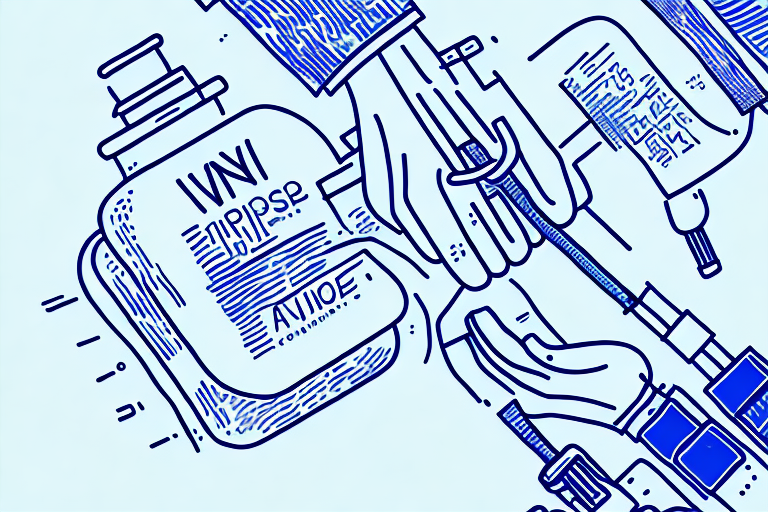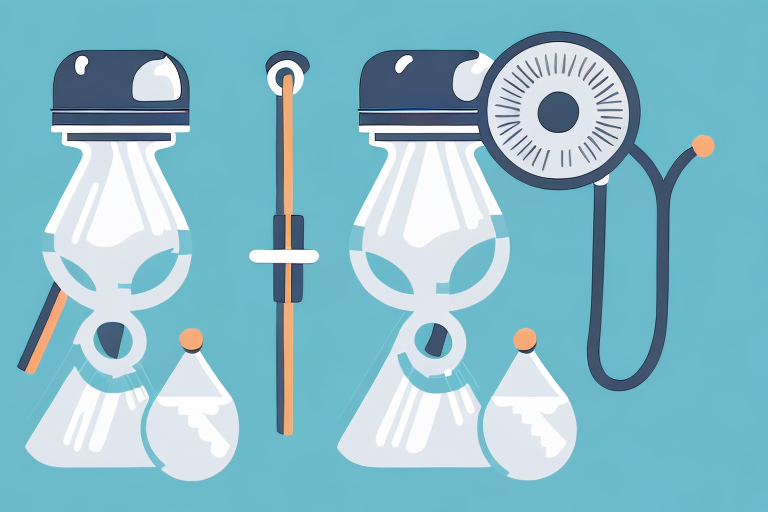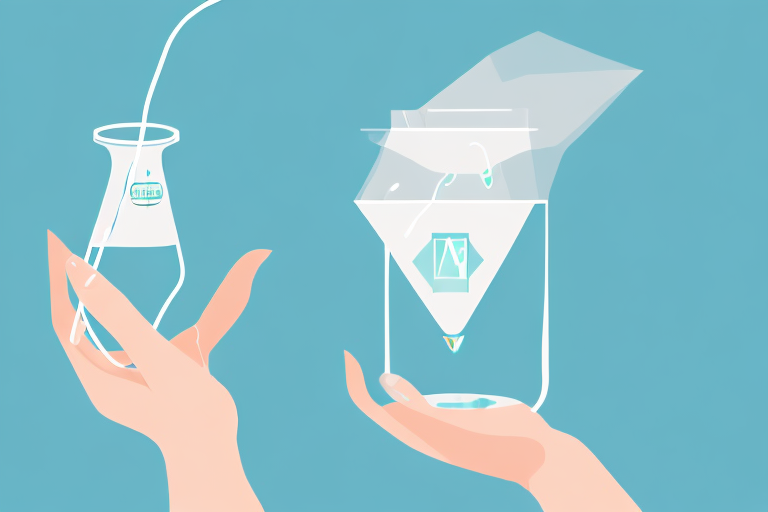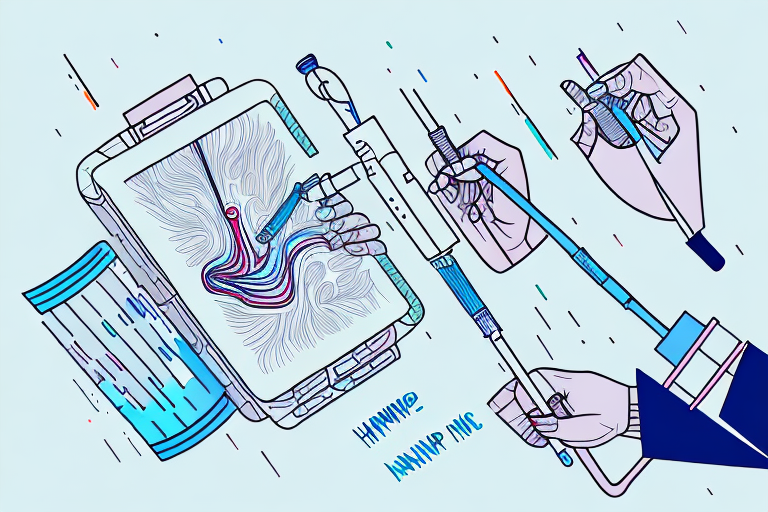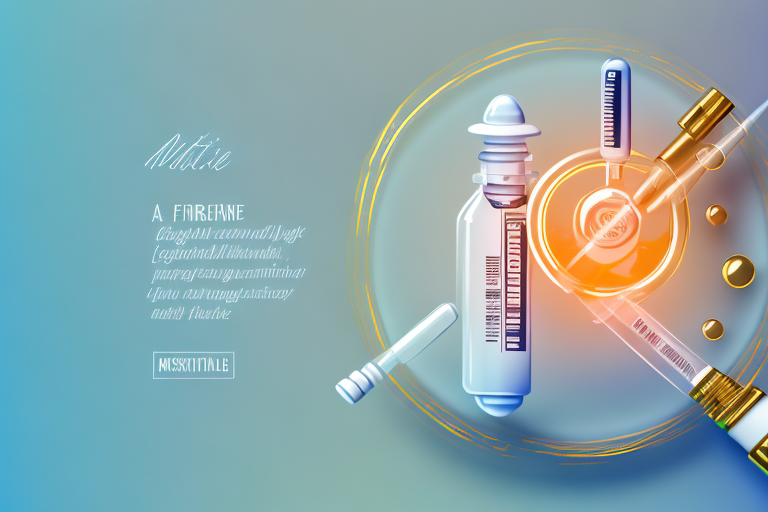The Benefits of Glutathione IV Therapy: A Comprehensive Guide
If you're looking for an effective way to boost your immune system, support liver function, slow the aging process, and improve cognitive function, glutathione IV therapy might be exactly what you need. In this comprehensive guide, we will take a closer look at this powerful treatment option and explore the many benefits it can offer.

Understanding Glutathione and Its Functions
What is Glutathione?
Glutathione is a powerful antioxidant that is naturally produced in the body. It is made up of three amino acids - cysteine, glutamine, and glycine - and is found in every cell in the body. Its primary function is to reduce oxidative stress, which can damage cells and contribute to a wide range of health conditions, including cancer, diabetes, and heart disease.
Glutathione is often referred to as the "master antioxidant" because it helps to regenerate other antioxidants in the body, such as vitamins C and E. This makes it a crucial component of the body's defense against oxidative stress.
The Role of Glutathione in the Body
Glutathione plays a crucial role in many bodily functions, including DNA synthesis and repair, detoxification, and immune system function. It also helps to regulate inflammation, which is a vital part of the body's natural healing process.
One of the most important functions of glutathione is its role in detoxification. It binds to toxins and heavy metals in the body, making them easier to excrete. This is especially important in the liver, which is responsible for filtering toxins from the blood.
Glutathione also plays a key role in immune system function. It helps to activate immune cells, such as T cells and natural killer cells, which are responsible for fighting off infections and cancer cells.
How Glutathione Levels Affect Health
There is a direct correlation between glutathione levels in the body and overall health. Low levels have been linked to a variety of health conditions, including Parkinson's disease, Alzheimer's disease, and liver disease. By increasing glutathione levels, individuals can improve their overall health and reduce their risk of developing these and other health conditions.
One of the most effective ways to increase glutathione levels is through diet. Foods that are high in sulfur-containing amino acids, such as garlic, onions, and cruciferous vegetables, can help to boost glutathione production in the body. Additionally, supplements such as N-acetylcysteine (NAC) and alpha-lipoic acid (ALA) have been shown to increase glutathione levels.
In conclusion, glutathione is a vital component of the body's defense against oxidative stress and plays a crucial role in many bodily functions. By understanding the importance of glutathione and taking steps to increase its levels in the body, individuals can improve their overall health and reduce their risk of developing a wide range of health conditions.
The Science Behind Glutathione IV Therapy
Glutathione is a powerful antioxidant that plays a critical role in protecting cells from damage caused by free radicals and toxins. It is produced naturally by the body, but levels can be depleted by factors such as stress, poor diet, and exposure to environmental toxins. Glutathione IV therapy involves the administration of glutathione directly into the bloodstream, providing a more potent and immediate boost to glutathione levels in the body.
How Glutathione IV Therapy Works
When glutathione is administered intravenously, it can quickly reach the cells and tissues that need it most. This method of delivery bypasses the digestive system, which can break down and reduce the effectiveness of oral supplements. IV therapy also allows for higher doses of glutathione to be administered than would be possible with oral supplements.
Once glutathione enters the bloodstream, it can begin to neutralize free radicals and toxins that can cause damage to cells and tissues. Glutathione also plays a key role in supporting the immune system, helping to fight off infections and diseases.
The Difference Between Oral and IV Glutathione
While oral glutathione supplements are available, they are not as effective as IV therapy. Oral supplements must pass through the digestive system, where they can be broken down and rendered ineffective. This means that much of the glutathione may never reach the cells and tissues that need it most.
IV therapy, on the other hand, delivers glutathione directly into the bloodstream, providing a more potent and immediate boost to glutathione levels in the body. This can be especially beneficial for individuals with compromised digestive systems or other health conditions that may interfere with the absorption of oral supplements.
Safety and Efficacy of Glutathione IV Therapy
Glutathione IV therapy is considered safe when administered by a qualified healthcare professional. The treatment is typically well-tolerated, with few side effects reported. However, individuals who are pregnant, breastfeeding, or have certain medical conditions may not be candidates for IV therapy.
Studies have shown that glutathione IV therapy can be highly effective in improving a wide range of health conditions, including chronic fatigue syndrome, autoimmune disorders, and neurological conditions such as Parkinson's disease. It has also been shown to be effective in supporting liver function and detoxification.
Overall, glutathione IV therapy is a promising treatment option for individuals looking to boost their glutathione levels and improve their overall health and well-being.
Key Benefits of Glutathione IV Therapy
Glutathione IV therapy is a popular treatment that has gained a lot of attention in recent years. This therapy involves the intravenous administration of glutathione, a powerful antioxidant that is naturally produced by the body. While glutathione is found in many foods and supplements, IV therapy can provide a more direct and effective way to increase glutathione levels in the body. Here are some of the key benefits of glutathione IV therapy:
Boosting Immune System Function
Glutathione is a crucial component of the immune system and plays a key role in protecting the body against pathogens and other harmful substances. By boosting glutathione levels, IV therapy can help to improve immune system function and reduce the risk of infection and disease. This is especially important for individuals who are prone to infections or who have weakened immune systems.
Detoxification and Liver Support
Glutathione is essential for liver function and detoxification. As the liver processes toxins and other harmful substances, it uses glutathione to help neutralize and eliminate them from the body. IV therapy can help to support these processes and improve overall liver function. This can be especially beneficial for individuals who have a history of alcohol or drug use, as well as those who have been exposed to environmental toxins.
Anti-Aging and Skin Health
Glutathione is a potent anti-aging agent and has been shown to improve skin health by reducing the appearance of wrinkles, age spots, and other signs of aging. By reducing oxidative stress and inflammation, glutathione can help to improve skin elasticity and promote a more youthful appearance. This can be especially beneficial for individuals who are concerned about the effects of aging on their skin.
Additionally, glutathione has been shown to have a protective effect against UV radiation, which can help to prevent skin damage and reduce the risk of skin cancer.
Improved Cognitive Function
Glutathione has been linked to improved cognitive function and a reduced risk of cognitive decline. By reducing inflammation and oxidative stress in the brain, glutathione can help to improve memory, focus, and overall cognitive function. This can be especially beneficial for individuals who are experiencing cognitive decline due to aging or other factors.
Increased Energy Levels
Glutathione plays a crucial role in energy production and can help to improve overall energy levels. By reducing oxidative stress and supporting mitochondrial function, glutathione IV therapy can help individuals feel more energized and less fatigued. This can be especially beneficial for individuals who are experiencing chronic fatigue or who have low energy levels due to a medical condition.
Overall, glutathione IV therapy is a safe and effective treatment that can provide a wide range of benefits for individuals of all ages and health statuses. Whether you are looking to boost your immune system, improve your skin health, or enhance your cognitive function, glutathione IV therapy may be a worthwhile treatment to consider.
Potential Side Effects and Risks
Glutathione IV therapy has become increasingly popular in recent years, with many people seeking its purported benefits for skin lightening, detoxification, and immune system support. While the therapy is generally considered safe, there are some potential side effects and risks to be aware of.
Common Side Effects
As with any medical treatment, there are some common side effects associated with glutathione IV therapy. These may include headache, dizziness, nausea, and vomiting. However, these side effects are usually mild and subside shortly after the therapy session is completed.
It is important to note that the severity and duration of these side effects can vary depending on the individual and their overall health status. Some people may experience no side effects at all, while others may experience more severe symptoms.
Allergic Reactions and Other Risks
While rare, allergic reactions can occur with glutathione IV therapy. Signs of an allergic reaction may include rash, itching, swelling, and difficulty breathing. If you experience any of these symptoms during or after your therapy session, it is important to seek medical attention immediately.
In addition to allergic reactions, there are other potential risks associated with glutathione IV therapy. These may include infection at the injection site and a decrease in blood pressure. It is important to discuss these risks with your healthcare provider before beginning the therapy.
Contraindications and Precautions
Glutathione IV therapy may not be appropriate for individuals with certain health conditions. For example, people with asthma, kidney disease, and certain blood disorders may be advised to avoid the therapy. It is important to discuss any health concerns with your healthcare provider before beginning glutathione IV therapy.
It is also important to note that glutathione IV therapy is not a substitute for other medical treatments. While it may offer some benefits, it should not be used as a sole treatment for any health condition. Your healthcare provider can help you determine if glutathione IV therapy is right for you and can provide guidance on how to incorporate it into your overall treatment plan.
What to Expect During a Glutathione IV Therapy Session
Preparing for Your Appointment
Prior to your appointment, you should drink plenty of water to ensure you are well-hydrated. You may also be advised to avoid certain medications or supplements before your session. It is important to follow any instructions given to you by your healthcare provider to ensure the best possible outcome from your therapy session.
Glutathione is a powerful antioxidant that is naturally produced by the body. It plays a critical role in neutralizing harmful free radicals and protecting cells from damage. Glutathione levels can be depleted by a variety of factors, including stress, poor diet, and exposure to toxins.
The IV Therapy Process
During your glutathione IV therapy session, you will have an IV line inserted into your arm or hand. The glutathione solution will be administered slowly over the course of several minutes. You may experience a mild sensation of warmth or flushing during the infusion process, which is a normal and expected response to the therapy.
IV therapy is a safe and effective way to deliver nutrients and medications directly into the bloodstream. This method allows for faster and more complete absorption of the substance being administered, as it bypasses the digestive system.
Post-Therapy Care and Maintenance
After your session, you may be advised to drink plenty of water and rest for a period of time. This will help your body to fully absorb the glutathione and maximize the benefits of the therapy. You may also be advised to schedule regular glutathione IV therapy sessions to maintain optimal glutathione levels in the body.
Regular IV therapy sessions can help to support overall health and wellness by providing the body with the nutrients and antioxidants it needs to function at its best. In addition to glutathione, IV therapy can deliver a wide range of other beneficial substances, including vitamins, minerals, and amino acids.
Overall, glutathione IV therapy is a safe and effective way to boost your body's natural antioxidant defenses and support optimal health and wellness. If you are interested in this therapy, be sure to speak with your healthcare provider to determine if it is right for you.
Finding a Reputable Glutathione IV Therapy Provider
If you're considering glutathione IV therapy, it's important to find a reputable provider who can ensure your safety and provide effective treatment. Glutathione is a powerful antioxidant that can help improve your overall health and wellness, but it should only be administered by a qualified healthcare professional.
Qualifications to Look For
When seeking a glutathione IV therapy provider, it is important to look for a qualified healthcare professional who has experience administering IV therapy. This may include a licensed nurse or doctor who has received specialized training in IV therapy. Look for providers who are licensed and insured, and who have a track record of providing safe and effective treatments.
It's also a good idea to ask about the provider's experience with glutathione specifically. While many healthcare professionals may have experience with IV therapy in general, glutathione is a specialized treatment that requires specific knowledge and expertise.
Questions to Ask Your Provider
Before beginning glutathione IV therapy, you should ask your provider about their experience, training, and qualifications. You should also ask about the cost of the therapy and whether it is covered by insurance.
Some other questions you may want to ask include:
- What is the recommended dosage of glutathione for my specific needs?
- How long will each treatment session take?
- What are the potential side effects of glutathione IV therapy?
- How many treatments will I need to see results?
Your provider should be able to answer these questions and provide you with detailed information about the treatment process.
Cost and Insurance Considerations
Glutathione IV therapy is typically not covered by insurance, and the cost can vary depending on the provider and location. You should discuss the cost of the therapy with your provider before beginning treatment.
It's important to note that while glutathione IV therapy may be more expensive than other forms of glutathione supplementation, it can be much more effective. IV therapy allows the glutathione to be delivered directly to your cells, which can lead to faster and more dramatic results.
Ultimately, the cost of glutathione IV therapy will depend on your individual needs and the provider you choose. Be sure to shop around and compare prices before making a decision.
Conclusion: Is Glutathione IV Therapy Right for You?
Glutathione IV therapy can provide a wide range of benefits for individuals seeking to improve their overall health and well-being. However, it is important to work with a qualified healthcare provider to determine whether this treatment option is appropriate for you. By considering the potential benefits and risks of glutathione IV therapy, you can make an informed decision about whether this treatment is right for you.
© 2024 IV Fluids | All Rights Reserved | Powered By OMG Marketing

